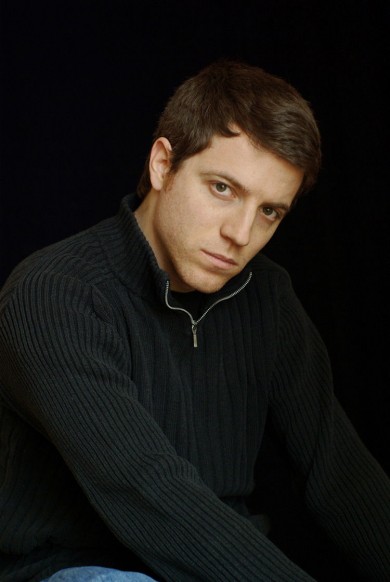Pescia opens Piano Festival with strongly individual playing

Cedric Pescia opened the Miami International Piano Festival's Discovery Series with a program of Couperin, Beethoven, Schumann and Messiaen. Photo: Uwe Neumann
Cedric Pescia opened the 2011 edition of the Miami International Piano Festival’s Discovery Series Thursday night at the Colony Theater in Miami Beach. First Prize winner of the Gina Bachauer International Competition in 2002, the Franco-Swiss pianist presented an ambitious program that juxtaposed the French Baroque vignettes of Couperin with major works of Beethoven and Schumann and the distinctively modern soundscapes of Messiaen and Kurtag.
Pescia is a thinking man’s pianist. His rock-solid technique is wedded to an intellectual approach that often yields unconventional, fascinating perspectives on familiar repertoire. An eccentric traversal of thirteen short pieces by Couperin was Pescia’s least successful offering. Originally conceived for harpsichord, Couperin’s music does not transfer easily to the modern piano, unlike Bach’s keyboard scores. Pescia fared best in the more lively pieces where his light touch was in synch with the music’s spirit. In other sections, his playing was abrupt and hard-edged, bereft of charm.
The bird song and bracing modern harmonies of Messiaen’s Le Courlis Cendre from book seven of Catalogue d’Oiseaux proved a more sympathetic vehicle. One of the twentieth century’s most distinctive voices, Messiaen’s music remains challenging and rewarding in its infinite variety and bold originality. Pescia attacked the score with gusto, dispatching Messiaen’s hand crossings at top speed. Contrasting hues and subtle dynamics illuminated the modernist impressionist haze of this nature portrait.
The opening movement of Beethoven’s penultimate Sonata No. 31 in E-flat Major emerged as almost improvisatory. As with Peter Serkin, Pescia’s Beethoven is a thoroughly contemporary interpretation that remains true to the austere and dissonant sound world of Beethoven’s late works. Pescia emphasized the wildness of the Allegro molto — hardly a scherzo in its unbridled fury — with the pauses suggesting terror. The fugue in the final movement was unhurried, the music imbued with noble authority. Pescia’s performance spanned the emotional spectrum from serene to demonic.
Ten of the Jatekok minitaures by Hungarian composer Gyorgy Kurtag were an entertaining interlude. Originally conceived as student exercises, these pieces demonstrate Kurtag’s mastery at creating singular musical cameos from the most fragmentary materials. The opening Prelude and Waltz is a charming pastiche. Pantomime is Kurtag’s hilarious sendup of performance art, the pianist going through the motions of playing without striking a note. Tribute to Tchaikovsky begins with the opening chords of that composer’s Piano Concerto No.1 reduced to clunkers. Ultimately the pianist falls on the keyboard with his arms, sounding a grandiose cluster chord. The wit of these pieces belie the composer’s creative imagination and Pescia reveled in the music’s strangeness and humor.
Pescia’s reinvention of Schumann’s Davidsbundlertanze was not for the faint-hearted. From the opening clipped phrasing of the first of numerous fractured waltzes, Pescia was on a wild ride. Extreme speeds, strong contrasts and emotional turmoil boiled beneath the surface dance rhythms. For all the power and rhythmic bite of his performance, Pescia’s soft playing and moments of repose proved most memorable. He vividly conveyed both Schumann’s erratic personality and sense of romance.
The Colony Theater proved a more intimate, welcoming venue for solo piano recitals than the festival’s previous home at the Lincoln Theater. The piano sound was clear, inner voices transparent. Once the venue for the New World Symphony’s chamber music programs in its earliest days, the Colony seems a good fit for small-scaled classical events.
The Miami International Piano Festival continues 8 p.m. Friday at the Colony Theater in Miami Beach with Walter Ponce playing works by Liszt and Schubert. 305-674-1040 www.miamipianofest.com.
Posted in Performances
Leave a Comment
Fri May 20, 2011
at 8:55 am
No Comments